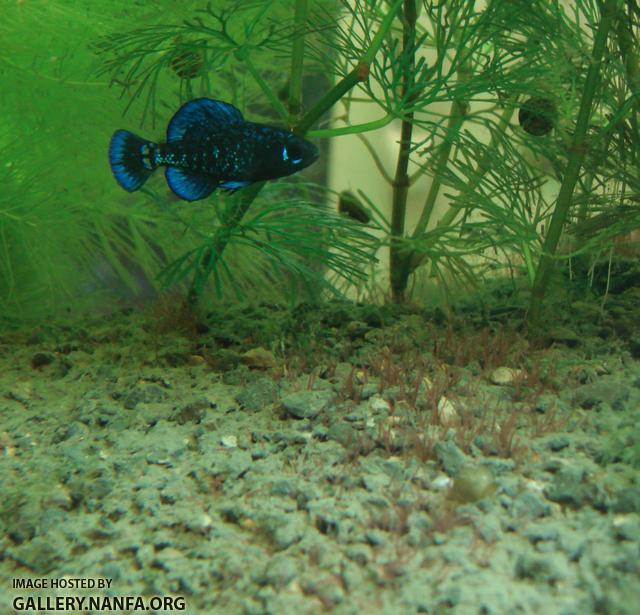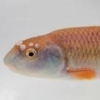How long without feeding?
#1
 Guest_Orangespotted_*
Guest_Orangespotted_*
Posted 17 December 2013 - 07:43 PM
The dorm I live in will be temporarily shut down for winter break, spanning from December 21st all the way until January 13th. Annoyingly, we are banned from entering our dorms at this time, considered trespassing if we try. I'm worried about my fishes in the tank there.
Although I could probably get an automatic feeder and light timer (Petsmart gift card was a b-day present) to feed the majority of the fishes and keep the plants alive, the darters are my concern. They have been eating frozen bloodworms, and with one exception they all refuse flake and pellets. I've been struggling to get a custodian or someone to come in and feed them, all I've been able to secure is a single feeding on January 4th. Up to this point, I've fed the darters a cube of bloodworms a day and skipped a feeding once a week. Every once in a while they get live scuds instead. I'm thinking of pouring my whole scud culture into the tank before I leave. What do you guys think? Have any creative ideas of how to get them food in the mean time, or am I underestimating them and they will be okay with that lengthy span of time?
#2
 Guest_Erica Lyons_*
Guest_Erica Lyons_*
Posted 17 December 2013 - 08:11 PM
An entire pound (plenty) is $40 including shipping at Eastern Aquatics: http://shop.easterna....sc?productId=1
Timers for your lights are cheap at Walmart. I put all four of my tanks on timers for $12. The lights now click on and off by themselves.
Be careful: once you find out how easy this is, you may keep your tank set up this way.
#3
 Guest_Orangespotted_*
Guest_Orangespotted_*
Posted 17 December 2013 - 08:44 PM
#4
 Guest_Erica Lyons_*
Guest_Erica Lyons_*
Posted 17 December 2013 - 09:02 PM
This is what a pound of blackworms looked like in my 75 gallon tank. The ground is basically solid blackworms.
There is just no way the darters could eat that all in two weeks. Nuh uh.
#5

Posted 17 December 2013 - 09:37 PM
The other option is to catch them out of the tank and keep them in a cooler for the duration. With a sponge filter (which you could season starting now) and an air pump, a cooler is really just an opaque aquarium that you can carry. And you could even do water changes occasionally as needed.
#6
 Guest_Ken_*
Guest_Ken_*
Posted 17 December 2013 - 10:05 PM
Of course you could turn down your thermostat in your room and open your dorm window which would lower the water temperature and slow down the metabolism of your fish also....
#7
 Guest_Erica Lyons_*
Guest_Erica Lyons_*
Posted 17 December 2013 - 10:14 PM
Darter: 3 grams = 0.0066 lb
Dozen darters: 12 * 0.0066 = 0.08 lb
Each one eats half its own weight in blackworms every day for three weeks = 0.04 lb/day * 21 days = 0.84 lbs, still not the entire pound of blackworms
They'd be fine. If you feel unsure, 2 lbs is $60. They're not gonna rot; they live in water. No ammonia spike, just lots of little wavy pink worms.
Here's a video of blackworms in my tank. They're not rotting. They're just chilling.
It's the leeches that limit the length of the blackworm colony in the tank to about 2-3 months, something you don't have to worry about because your darters will eat the leeches.
One thing to consider is surface plant cover. If you've got duckweed, I'd remove basically all of it before you go. I left my tank to its own devices over my honeymoon and the floating plants overgrew and suffocated everything. I lost 40 some fish. It was pretty sad
#8

Posted 17 December 2013 - 10:25 PM
Do you have any experience to share with fish going for periods of time without eating? I know you keep a lot of fish, not just the Elassoma.
#9
 Guest_Erica Lyons_*
Guest_Erica Lyons_*
Posted 17 December 2013 - 10:27 PM
Yeah, I dumped lots of blackworms in. Three months that's all they ate. I noticed one day they were gone, so I had to start feeding the tank again. It's documented in my Elassoma gilberti thread.Do you have any experience to share with fish going for periods of time without eating?

#10
 Guest_Skipjack_*
Guest_Skipjack_*
Posted 17 December 2013 - 11:05 PM
#11
 Guest_Ken_*
Guest_Ken_*
Posted 18 December 2013 - 03:03 PM
For clarafication, the suggestion I mentioned using the net method was based one the statement that OS does not have access to or prefers not to acquire a large quantity of blackworms.
A couple thoughts OS..... What size is your tank? What's the bio load on your filtration? Is it already heavy?
Even if your bio load isn't heavy, this is just my opinion but unless you have a large system I would not suggest dumping in a pound of anything (living or otherwise). Even blackworms create waste. So too by introducing an excessive amount of food for your darters (and other fish), it will create more waste than "normal" conditions at least initially before your filtration can balance out. And if you were to be as unfortunate as I have been in the past to have a blackworm culture crash it can be a stinky messy situation....
#12
 Guest_Erica Lyons_*
Guest_Erica Lyons_*
Posted 18 December 2013 - 03:21 PM
#13
 Guest_Orangespotted_*
Guest_Orangespotted_*
Posted 18 December 2013 - 04:14 PM
I'll try to describe the tank and situation in more detail, so maybe it'll be easier to decide what I should do:
It's a 29 gallon tank, rather heavily stocked with both fishes and plants. I've gotten away with it so far since the plants are dense and are nutrient hogs: Sago Pondweed, Variableleaf Pondweed, Temperate Hornwort, Nuttall's Waterweed, Red Ludwigia, and more. The fishes that eat flake and pellet are as follows: 2 2" Orangespotted Sunfish females, 2 Blackstriped Topminnows, about 7 Carmine Shiners, 3 Blacknose Dace, 3 1.5" Northern Hogsuckers, and a single large Rainbow Darter. The ones that won't: 2 Banded Darters, a large Fantail Darter, 4 smaller Rainbow Darters, and a Johnny Darter. With the timer I bought, the lights will be on 8 hours a day, and with the food dispenser, a half tsp. of cichlid pellets will be added in the morning (may seem like a lot at once but the minnows/sunfish are voracious and ensures the hogsuckers get some), and about a quarter tsp. at night of flake (maybe... it doesn't seem to work very well with the flake, might just end up being more cichlid pellets instead).
Unfortunately, I can't really try to slow their metabolisms with cold... I'm not allowed to open my window before I leave and the temperature must be set at 70 degrees F daytime and 62 degrees F at night (what it has been at).
Erica: I tried requesting a bunch of blackworms at the local shop for the next shipment (the link you provided looks solid but $60... ouch... I still have my same high school wardrobe if that explains it), but they didn't think they could get them in time... But it gave me a new idea: I got about 15 small ghost shrimp and a whole bagful of various small snails (pocket/Malaysian/ramshorn). Do you think this'll work? I'm holding the potential feeders in a plastic shoebox for quarantine at the moment, and to stuff their guts with fish food. I know the Bandeds will appreciate the snails since they eradicated my former colony, but I'm not certain whether the other darters will be able to take on the shrimp or snails.
Michael: This is good info, 5 to 6 days hmmm... I wonder how quickly the darters will eat the shrimp and snails? They love to pig themselves out on bloodworms.
Ken: These are the darters and a few of the others we collected on the trip! The darters are perky little fellows which are fun to watch, and I'm impressed how well they've held their color. (I'll be sending you another message once finals are over about what I've found as far as places to sample around here; I haven't forgotten!
#14
 Guest_Yeahson421_*
Guest_Yeahson421_*
Posted 18 December 2013 - 04:33 PM
#15
 Guest_gerald_*
Guest_gerald_*
Posted 18 December 2013 - 04:36 PM
#16
 Guest_Erica Lyons_*
Guest_Erica Lyons_*
Posted 18 December 2013 - 05:54 PM
Then you could leave a piece of lunch meat or a cocktail shrimp in your tank to keep the beneficial bacteria population up, and do a water change with dechlorinated water to reduce nitrate when you get back.
#17
 Guest_labgirl_*
Guest_labgirl_*
Posted 18 December 2013 - 06:16 PM
My college fish just came home with me in a 5g bucket and spent the non-summer breaks living in rubbermaid bins.
#18

Posted 18 December 2013 - 07:09 PM
#19
 Guest_Yeahson421_*
Guest_Yeahson421_*
Posted 18 December 2013 - 09:28 PM
Edit: Made a thread for Gerald's proposal: http://forum.nanfa.o...-food-cultures/
#20
 Guest_gerald_*
Guest_gerald_*
Posted 19 December 2013 - 10:47 AM
A rubbermaid tub and air-powered sponge filter (cycled) should do fine for a month.
Certain fish in captivity (sunfish especially, but not pygmies) are like cats, and will keep on killing prey long after they've eaten all they can hold. Blackworms might work because they burrow, and dismembered pieces of blackworm stay alive, but with scuds I expect they'd all get killed in the first few days.
Without food, the darters might be still alive after 3 weeks, but very weak and they may never recover. Darters are adapted for eating small amounts all day, every day, unlike fish that eat larger prey and are better adapted for gorge-and-starve cycles.
1 user(s) are reading this topic
0 members, 1 guests, 0 anonymous users









